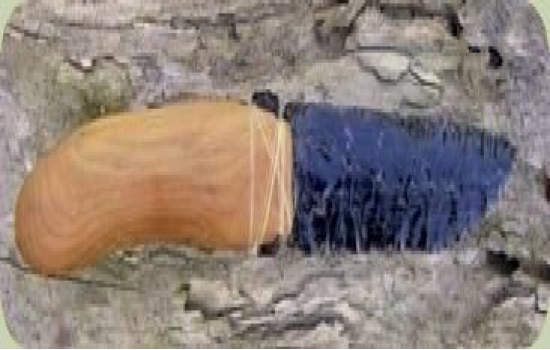Knowledge of both Native American survival skills and modern survival skills is key to solving difficult outdoor challenges. Oftentimes being in a wilderness survival situation calls upon much of one’s mental and physical resources. The more a person knows, the better the chances are that they will not only survive, but thrive in a challenging wilderness situation.
With this in mind, in this article I’ll share two primary wilderness survival concepts with you, one modern and one traditional. First the modern……

The Rule of Threes
One of the most important concepts in wilderness survival is understanding survival priorities. Modern research brings us the Rule of Threes, a principle that can make the difference between life and death. The Rule of Threes puts our survival needs into perspective, and though they are rough approximations of time, they are an easy way to grasp and remember the order of survival priorities. The Rule of Threes says….
1) You can survive for three hours without maintaining your core body temperature.
2) You can survive for three days without water.
3) You can survive for three weeks without food.
What the rule of threes shows us is that the most important survival priority is maintaining your core body temperature (not getting too cold or hot). The second most important priority is staying hydrated. Food is lowest on the list of priorities, even though your belly may be telling you otherwise. This means that the most important survival needs to attend to first are shelter and water.
Unfortunately, these priorities also become apparent when analyzing deaths of persons lost in the wilderness. Most lost persons perish due to hypo- or hyperthermia (freezing or overheating), and the second biggest cause of death is dehydration. Now that you know your priorities (shelter first, then water, food is last), you are much better prepared to survive.
Native American Survival Skills: Basic Concepts
Native American survival skills, also known as traditional survival wisdom, shows us how our needs can be met if we find ourselves without gear such as tents, sleeping bags, and water purifiers. Shelters can be created with leaves and sticks, fires can be started by creating friction between two dead branches, etc…
Traditional survival wisdom often comes in the form of stories and lore, as many hunter-gatherer cultures pass down their knowledge from generation to generation through oral traditions. Through my travels, I came across the following piece of oral wisdom, the second survival concept I’ll share in this article:
“Survival is making works of art.”
At first glance this statement seemed odd to me. How is wilderness survival related to making works of art? Yes, many hunter-gatherers ornately decorated many of their important tools relating to their survival, such as canoe paddles, grinding bowls, etc., but how does this relate to surviving a rough night in the woods?
Oral tradition often has a way of containing layers of teachings within teachings. Upon further reflection, this statement could be further interpreted in that much time, energy, and care goes into the artistic construction of each survival tool to ensure that tool’s effectiveness. By putting care into what you build, it becomes a work of art, while at the same time increasing its practical value.

The importance of this concept has been clearly demonstrated to me over the years I’ve spent teaching Native American survival skills. For example, a hastily built fire-making drill is much less likely to produce fire than an artfully constructed kit, where close attention was paid to each working detail.
When I adopted the concept of survival being “making works of art”, my shelters ended up being warmer, my fire kits worked better, and I gained a new level of respect for the artfulness of wilderness living. I hope you too will discover the “art” in survival.
source : Jason Knight



